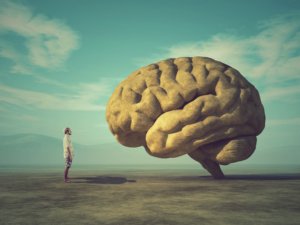5 Study Skills to Master, According to Science
Everyone wants to know the secret to getting good grades. Here it is: The surest way to academic success is knowing how to maximize your study time.
If you have study routines that really work for you, stick with them. But if you think your study skills could be better, keep reading. We’ve gathered scientifically-proven study tips to help you master the art of studying.
Study Skill #1: Don’t cram

When you learn information over time, your brain is much better at storing things away neatly. Your mental locker is cleanly organized, so it’s easier to locate information when you need to—like on test day.
This phenomenon is termed the spacing effect, and it has been studied extensively by neuroscientists and psychologists. By reviewing things bit-by-bit and revisiting it over time, you can better remember and recall the information.
Cramming also contributes to testing anxiety.
When you wait until the last minute to cram for a test, you put unnecessary pressure on yourself that can easily build into anxiety. When you cram, you don’t fell totally prepared for the test. That self-doubt builds into stress. The combination of being less than perfectly prepared and being a ball of nerves is not exactly conducive to a great test score.
Instead of spending five or six hours cramming for your test the night before, spend an hour a day over five or six days studying. You’ll learn more efficiently AND avoid a common testing anxiety trigger.
Study Skill #2: Be healthy – exercise, sleep, and eat right
This tip is easy to overlook. You’re young, you’re healthy – you’ve got your whole life to worry about things like diet and exercise, so why bother now? Science proves that healthy lifestyle choices make you smarter.

A study out of the University of British Columbia found that regular cardio literally makes your brain bigger. Specifically, regular aerobic exercise was associated with a bigger hippocampus, the part of the brain that deals with verbal memory and learning.
Sleep is almost as important to your grades as studying is. Studies show that sleep is necessary for you to be able to coordinate and access previously learned information. When you sleep, your brain processes and stores everything you learned that day. If you don’t sleep, all those things you studied don’t get properly stored away. It’s like going grocery shopping and then leaving the ice cream you just bought sitting on the counter to melt.
The final component of a healthy learning lifestyle: Diet. The brain needs fuel – not just any crappy old fuel, but good fuel. Multiple studies have found a correlation between a diet high in refined sugars and impaired brain function. If you want your brain to run at full capacity, you’ve got to feed it a healthy diet full of antioxidants, omega-3 fatty acids, and actual vitamins.
So if you want to hit your peak brain performance, go for a walk, get a good night’s sleep, and eat a vegetable.
Study Skill #3: Switch it up
At some point in time, you’ve probably been told to establish a quiet study place and always study in that location. Turns out, this advice is completely and totally wrong.

Now THIS is a place where we’d like to study.Studies show that people learn material better when they study the same material in multiple settings. The brain creates associations between the information being studied and the setting in which you are studying. By studying the same information in multiple settings, you create more and more associations with that material, making it harder to forget the information.
It’s not the just the location that you should switch up – you should also switch up the material itself. Instead of spending an entire study session working on memorizing the battles of the Civil War for history class, mix it up. In one study session, spend some time studying the battles of the Civil War, then spend some time doing practice free response questions about Reconstruction, then spend some time studying important terms from the relevant chapters. This kind of mixed practice helps the brain pick up on deeper patterns, leading to better quality learning and easier-to-access memories.
Study Skill #4: Learn to teach
Don’t study as if you’re going to recall the information for a test (even though you will). Study as if you’re going to teach the information to someone else. Studies indicate that you’re more likely to understand and retain information if you learn it with the intent of explaining it to someone else.

Take this study method to the next level and actually teach the concepts to someone else. Ideally, you’ll find a classmate or friend to teach it to – someone who can ask questions and force you to really roll the information around in your mind. If not, teach it to your dog, to a stuffed animal, or to the wall. By forcing yourself to explain the information and all of its nuances, you’ll force yourself to better understand it.
Study Skill #5: Test yourself
Too often, we think of tests as a way to evaluate what you’ve learned. Instead, try thinking of tests as a way of learning. Studies show that when we test ourselves on information, we force ourselves to recall the material; the more we recall that material, the easier it becomes to recall the same information in the future.

So take practice tests, even if you have to write your own. Look at the headings in your text book and make yourself recall the information contained in that section. Use flashcards to quiz yourself. Do anything you can think of to routinely test yourself on the things you’re studying – not to see whether you’ve learned them yet, but to help yourself learn them better.
Bonus Tip: Watch this video
Researchers at UCLA’s Bjorck Learning and Forgetting Lab put together this short video to help summarize their findings about how we learn. Check it out before your next study session!


